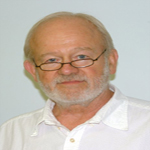Whither Education?
In the weeks leading up to the inauguration of Gov.-elect Scott Walker, I have found myself embroiled in heated discussions over what to expect from the incoming administration — specifically in regard to critically important issue of the state of education in Wisconsin.
It’s no secret that our schools are in a state of flux, and what we have been doing is not good enough — the state of Wisconsin and the U.S. are falling seriously behind much of the rest of the world.
For the last three years, I have hosted exchange students from other nations, and even though these kids are considered “cream of the crop” students, they have arrived with enough academic credits to graduate from virtually any high school in the United States. We have to place them as seniors and graduate them even though they are only 16 years old, because they are so far ahead of our own kids.
And these young students of mine are from Kosovo, Tajikistan, Uzbekistan and Siberia — so-called “third world nations” — not from those countries usually considered our primary economic competitors.
World standings in education are studied and reported on by the Organization for Economic Cooperation & Development in their Program for International Student Assessment. Finland consistently ranks at the top in this listing — maybe we could learn something from them. Recent figures show our students to be now in the mid-twenties rank in achievement among the top 30 economic nations in the world, and that is quite simply not good enough.
There is considerable debate going on in this country about how to improve our schools, and several major players –including the President and his Secretary of Education Arne Duncan — are leading the way with programs that are both innovative and sometimes controversial.
Several years ago, I spent a day in a remarkable school in Helena, Arkansas, a poor town in the Mississippi Delta, called the KIPP Delta School . The “Knowledge Is Power Program” is a nationwide group of experimental schools that is revolutionizing education. KIPP schools are free, open-enrollment, college-preparatory institutions that work primarily with low-income students in underserved communities to ensure that these students get to graduation day — and beyond. Currently, there are 99 of these schools operating in 20 states across the country.
The kids I met in Helena attended school for eight hours a day, six days a week — and surprisingly, they loved it! The principal stood at the door each day, greeting the students as they arrived in the morning and bidding them good night as they left. The teachers were excited and the kids, well, they were delightful.
By this time next week, Scott Walker will be sworn in as Governor. Walker’s campaign website details his plans for Wisconsin’s education future, and it’s our duty to hold him accountable. Can we afford to allow our state and the nation as a whole to fall behind the rest of the developed and developing world in educating our kids? There are great things being done around the world in education — new and revolutionary things– and they are making a significant difference in how our young people are progressing.
To move forward, Wisconsin must follow suit — and we must expect that our political leaders make education a top priority.





















